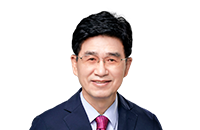- 전 세계 CEO들을 대상으로 진행한 신규 PwC 설문조사, 성장률 전망과 더불어 코로나19 팬더믹이 현재와 미래 사업 운영 방식에 미칠 영향 살펴
- CEO들 -원격 근무, 자동화 및 저밀도 사무실로의 전환이 계속될 전망이라 밝혀
- 기후 변화, 공급망 안전 및 고객 체험에 대한 조정은 더 장기적인 변화를 도모하는 추가 경향들
(런던 2020년 8월 11일 PRNewswire=연합뉴스) PwC가 전 세계 CEO 중 699명을 대상으로 진행한 새로운 설문조사 결과, 비즈니스 리더와 정책 입안가들은 앞으로 계획, 투자 및 운영 방식을 근본적으로 재고해야 하는 것으로 나타났다.
이번 설문조사에 따르면, 대다수 CEO는 코로나19 팬더믹으로 인한 원격 협력(78%), 자동화(76%) 및 사무실 내근 직원의 감소(61%) 현상이 지속될 것으로 예상했다. 전체 응답자 중 61%는 앞으로 회사의 사업 모델을 더 디지털화할 예정이라고 응답했다. 이는 코로나19 팬더믹으로 인해 가속화된 변화다.
CEO들의 응답을 살펴보면, 향후 12개월 동안, 그리고 그 이후의 성장을 보장하기 위해 사업 운영을 재편성하는 가운데, 디지털 기반시설, 유연한 근무 및 직원 웰빙이 이사회의 최고 안건으로 부상했다. 전체 CEO 중 58%는 공급망 안전성 확보에 여전히 중점을 두고 있다. 또한, 생산부터 배송까지 제품 추적을 지원하며, 공급업체와 파트너들이 위기 속에서도 회복력을 잃지 않도록 하고자 기술 투자를 촉진할 예정이라고 응답했다.
PricewaterhouseCoopers International Limited 글로벌 회장 Bob Moritz는 "비즈니스 리더들은 오늘날 회사 운영을 이어가는 동시에 미래를 위한 회사 전략을 근본적으로 재고해야 한다"라며 "그렇게 해야, 완전히 달라진 세상에서 번성할 수 있도록 사업을 재편할 준비를 마친 상태로 코로나19 팬더믹을 빠져나올 수 있다"고 말했다. 그는 "또한, 비즈니스 리더들은 그 과정에서 코로나19로 인한 사회 변화의 가속화와 더 광범위한 이해관계자의 증가하는 기대, 그뿐만 아니라 기후 변화부터 포퓰리즘에 이르기까지 사업의 미래를 근본적으로 바꿀 다른 문제에 대해서도 고심해야 한다"라고 설명했다.
수십 년간 지속된 세계화 증대가 도전을 받는 지금, CEO 5명 중 약 2명(39%)은 내륙화와 내부 조달을 향한 움직임이 영구적일 것으로 확신했다. 국수주의가 계속 증가할 것으로 예상한 비율도 이와 비슷했다.
PwC USA 법의학 및 위기 부문 글로벌 리더 Kristin Rivera는 "코로나19 팬더믹으로 인해 CEO들은 운영 모델에 회복 탄력성을 구축하는 것이 얼마나 중요한 것인지 재차 깨달았다"라며 "디지털 근무 관행을 신속하게 채택하거나 공급망을 전환할 수 있었던 기업은 충격에 더 잘 견뎠다"고 말했다. 그는 "CEO들은 전개되는 팬더믹과 싸우는 한편, 미래에 어떠한 방식으로 사업을 운영할지 재고해야 한다"면서 "위기 속에서 구축한 모든 혁신이 장기적으로 옳은 선택인 것은 아니지만, 거기에서 배울 교훈은 많은 법"이라고 강조했다.
당연히 CEO들은 올해 수익 성장 전망에 신중한 자세를 취했다(45%는 '약간 확신'했고, 15%는 '매우 확신'했다). 65%는 전 세계적으로 성장률이 감소할 것으로 예상했다. 세계 경제에 대한 우려가 가장 높은 지역은 아프리카, 중·동부 유럽, 아시아 및 라틴 아메리카였다.
또한, 비즈니스 리더들은 코로나19 팬더믹으로 인해 더 광범위한 이해관계자 문제, 특히 직원 문제에 대응하는 것이 더 중요해졌다고 언급했다. 직원을 위한 지원책으로는 건강과 안전(92%), 웰빙(61%), 재정 지원(24%)이 있다. 42%는 지역사회 단체에 기부했고, 비즈니스 리더 중 약 3분의 1(32%)은 본인의 임금을 삭감했다. 직원 유지율을 최대한 높이고(38%), 직원의 건강과 안전을 보호(92%)한 CEO들은 이와 같은 조처가 조직의 장기적인 명성에 긍정적인 영향을 미칠 것으로 예상했다.
PwC USA 인재 및 조직 부문의 공동 글로벌 리더 Bhushan Sethi는 "유연한 근무로의 이전이 가속화되고 있으며, 이는 수많은 기업에서 중요한 부분이 됐다"라며 "어떤 새로운 모델이 부상하든 간에 안전, 보호 및 웰빙에 투자하는 직원 지향적인 정책이 채용, 유지 및 기업 명성을 위한 새로운 차별 요소가 될 것이 분명하다"라고 언급했다.
코로나19로 인한 변화는 이미 산적한 CEO들의 안건에 많은 부분을 추가했다. 기후 변화는 소비자와 기업 양쪽 모두에서 여전히 영향력이 큰 동향이다. 기후 변화를 완화하기 위한 노력이 계속될 것인가에 대한 미래 전망을 묻자, 대다수 비즈니스 리더(47%)는 "계속될 것"이라고 응답했다. 비즈니스 리더들은 단기적인 일회용품(살균제와 마스크 포함)의 증가와 공유 경제 이용률 감소가 일시적인 현상에 불과할 것이라고 판단했다.
도시로부터 제한적인 철수
대다수의 CEO(61%)는 직장 밀도가 예전보다 낮아질 것으로 보고 있다. 미래 도시가 수행하는 역할에 대해서는 의견이 갈라졌다. 34%는 탈도시화 경향이 이어질 것으로 예상했고, 38%는 탈도시화 경향이 일시적인 것으로 치부했다.
정부의 역할에 대한 의견 대립
비즈니스 리더들은 정부 지원이 연장될 것으로 예상하지 않았다. 대다수 비즈니스 리더들(57%)은 정부 개입이 일시적일 것으로 전망했다. 그러나 정부가 코로나19 이후 회복과 사업에 영향을 미치는 정책을 지원할 잠재력도 남아 있다. 향후 12개월 동안 세계 및 기업 성장 전망이 침울함에도 불구하고, 정부 지원이 연장될 것으로 내다본 비즈니스 리더는 3명 중 1명 미만(30%)에 불과했다. 응답자 5명 중 1명은 코로나19 팬더믹 중에 사업을 위한 정부 지원을 거절했다고 응답했다.
Bob Moritz PwCIL 글로벌 회장은 "일부 CEO들은 중요한 시험을 통과했다고 느낄 것"이라며 "이제 중요한 것은 조직과 관련해서 알게 된 중요한 지식을 사업과 사회를 위해 효과적으로 이용하는 것"이라고 강조했다. 그는 "코로나19 팬더믹에서 가장 오래 지속될 변화는 더는 장기적 또는 단기적 변화 사이에서 선택하는 것이 아니라는 현실"이라면서 "이제는 장기적 변화와 단기적 변화 양쪽 모두를 해결해야 한다"라고 설명했다.
설문조사 소개:
2020년 6월과 7월에 PwC 글로벌 CEO 설문조사[https://www.pwc.com/gx/en/ceo-agenda/ceosurvey/2020.html ]의 일환으로 진행된 PwC CEO 패널 조사는 코로나19로 인한 새로운 비즈니스 모델과 주요 경향에 대한 CEO 699명의 의견을 반영한 것이다. 이들 CEO는 민간 기업과 공공 기업(규모가 작은 곳도 있고, 규모가 10억 달러가 넘는 곳도 있다)의 리더로서 다양한 산업, 국가 및 영역을 대변한다. 응답자는 서유럽(전체 응답자 중 42%), 북미(7%) 및 중동(3%)을 포함해 67개 국가와 지역 출신이다.
PwC 소개
PwC는 사회의 신뢰 구축 및 중요한 문제 해결을 목표로 한다. PwC는 품질 보증, 자문 및 세금 서비스를 제공하는 회사 네트워크로, 157개국에 걸쳐 276,000명 이상의 직원을 보유하고 있다. 자세한 내용을 확인하고 중요한 정보를 제공하려면 웹사이트 www.pwc.com을 방문한다.
PwC는 PwC 네트워크 또는 하나 이상의 회원사를 말하며, 각 회사는 별도의 법인이다. 자세한 내용은 www.pwc.com/structure를 참조한다.
(c) 2020 PwC. All rights reserved
로고 - https://mma.prnewswire.com/media/1121790/PWC_Logo.jpg
PWC Logo
출처: PwC
CEOs: Post-Covid changes are permanent and there are more to come
- A new PwC survey of CEOs across the globe looks at the outlook for growth and the impacts of the COVID-19 pandemic on the way businesses operate now and in the future.
- According to CEOs, shifts towards remote working, automation and low-density offices are here to stay.
- Climate change, supply chain safety and adapting the customer experience are amongst additional trends driving further long term change.
LONDON, Aug. 10, 2020 /PRNewswire/ -- The need for business leaders and policy makers to fundamentally rethink the way they plan, invest and operate in the future is underlined in a new survey of 699 global CEOs released by PwC.
The survey shows the majority of CEOs believe that COVID-19 pandemic driven shifts towards remote collaboration (78%), automation (76%) and fewer people working from offices (61%), are here to stay. Overall, 61% say their business model will be more digital in the future - a change accelerated by the pandemic.
Responses show digital infrastructure, flexible working and employee well-being will top their boardroom agendas as they reconfigure business operations to secure growth in the next 12 months and beyond. Fifty-eight percent of CEOs say ensuring supply chain safety will remain a focus, driving technology investments to enable tracking of products from production to delivery, and to ensure their suppliers and partners are resilient during crises.
"Business leaders need to simultaneously keep their company running today and fundamentally rethink their strategy for tomorrow, so they come out of the pandemic ready to reconfigure their business to thrive in a very different world. And they need to do that, thinking not just about the COVID-19 acceleration of change in society and the rising expectations of their broader stakeholders, but also the other issues that are going to fundamentally reshape the future of business - from climate change to populism," says Bob Moritz, Global Chairman, PricewaterhouseCoopers International Limited.
In a challenge to decades of increased globalisation, almost two in five (39%) of CEOs believe there will be a permanent shift towards onshoring and insourcing, and a similar share expect an enduring increase in nationalism.
Kristin Rivera, Global Leader, Forensics & Crisis, PwC US, comments:
"The COVID-19 pandemic has reminded CEOs of the importance of building resilience into their operating model. Firms that were able to quickly adopt digital working practices or switch their supply chains were better able to withstand the shock. CEOs now need to simultaneously contend with the unfolding pandemic and to rethink how they operate in the future. Not every innovation developed in a crisis is right for the long term, but there is much to learn."
CEOs are naturally cautious on their own revenue growth prospects in the year ahead (45% somewhat confident: 15% very confident). 65% are predicting a decline in global growth. Concern about the global economy is highest in Africa, Central & Eastern Europe, Asia and Latin America.
Business leaders also believe the pandemic increased the importance of responding to a wider range of stakeholder issues, particularly employees. Employee support measures included health and safety (92%), well-being (61%) and financial support (24%). Forty-two percent made contributions to community organisations and almost a third (32%) of business leaders reduced their own pay. Those CEOs who maximised retention (36%) and protected employee health and safety (92%) believe it will have a positive impact on their organisation's long-term reputation.
Bhushan Sethi, Joint Global Leader, People and Organisation, PwC US, comments:
"The accelerated shift to flexible working has been valuable for many companies. Whatever new models emerge, it's clear that employee-oriented policies that invest in safety, protection and well-being could become the new differentiator for recruitment, retention and company reputation."
The changes driven by COVID-19 add significantly to an already full agenda for CEOs. Climate change remains an influential trend for consumers and businesses alike. When asked if the shift to climate change mitigation would endure, the majority of business leaders (47%) said it would. Business leaders believe short term increases in disposables (including sanitizers, masks) and decreases in the use of the sharing economy would only be temporary.
Limited retreat from cities
While the majority of CEOs (61%) believe that there will be lower workplace density than before, they remain divided about what role cities will play in the future: 34% believe the shift towards de-urbanisation will continue; 38% believing it is temporary.
Divided about the role of government
Business leaders are not expecting extended government support, with the majority (57%) believing state intervention to be a temporary feature, despite the potential for governments to use the support to influence COVID-19 recovery and policies impacting business. Less than one in three (30%) believe government support will be sustained, despite a gloomy outlook for global and organisational growth prospects in the next 12 months. One in five respondents say they declined government backed support for their business during the pandemic.
Bob Moritz comments:
"Some CEOs may feel like they've passed a critical test. What's critical now is that they use the important knowledge they've gained about their organisations effectively for business and society. The most enduring shift in this pandemic is the reality that it can no longer be a choice between the long and the short term. We need to address both."
About the survey:
PwC's CEO Panel survey, conducted in June and July 2020 as an extension of PwC's Global CEO Survey [https://www.pwc.com/gx/en/ceo-agenda/ceosurvey/2020.html ] ― reflects the views of 699 CEOs on emerging business models and key trends resulting from COVID-19. They are leaders of private businesses and public companies, of small firms and $1 bn+ enterprises, and represent a diverse cross-section of industries, countries and territories. Respondents came from 67 countries/territories including: Western Europe (42% of respondents): North America (7%); Middle East (3%).
About PwC
At PwC, our purpose is to build trust in society and solve important problems. We're a network of firms in 157 countries with over 276,000 people who are committed to delivering quality in assurance, advisory and tax services. Find out more and tell us what matters to you by visiting us at www.pwc.com.
PwC refers to the PwC network and/or one or more of its member firms, each of which is a separate legal entity. Please see www.pwc.com/structure for further details.
(c) 2020 PwC. All rights reserved
Logo - https://mma.prnewswire.com/media/1121790/PWC_Logo.jpg
PWC Logo
Source: PwC
[편집자 주] 본고는 자료 제공사에서 제공한 것으로, 연합뉴스는 내용에 대해 어떠한 편집도 하지 않았음을 밝혀 드립니다.
(끝)
<저작권자(c) 연합뉴스, 무단 전재-재배포 금지>
관련뉴스















